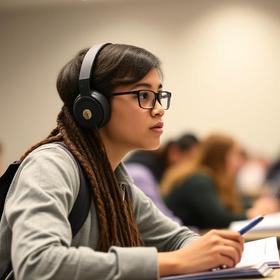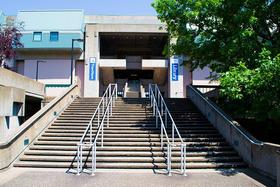Whether you have already decided on a career path, or if you’re looking to broaden your horizons, community colleges offer a wide variety of elective courses that can expand your personal and professional networks, while also leading to a fulfilling educational experience.
The Personal Benefits of Elective Courses
While every degree program has specific requirements, electives allow students to test the waters outside their main area of focus. By exploring elective options, you may gain a new perspective on your professional calling. Regardless of whether or not your electives lead you to a new career, or simply add to your community college experience, electives allow potential job-seeking candidates when applying for work. In fact, employers seek candidates who have well-rounded backgrounds. Showing a diverse academic background, along with your career focus, demonstrates that you are versatile and enjoy learning.
The Academic Benefits of Elective Courses
While electives often provide students with new opportunities and fulfilling educational experience, studies are also revealing that electives actually promote better thinking and learning. For example, in considering art electives, “more and more business leaders are realizing that arts education helps to prepare young people for the workplace, acknowledging that arts education develops collaborative skills, technological competencies, flexible thinking, and an appreciation for diversity,” according to Bernard Cesarone. Studies show that the study and practice of art allow students to foster better critical thinking skills, while building values that connect to fellow colleagues and peers, leading to a better-rounded employee or student.
Furthermore, the elective study of foreign or native languages also leads to a better understanding of vocabulary, grammar, mechanics, and communicative skills. In studying any of the language arts courses, students tend to see an improvement in their overall speaking and written abilities. On the other hand, if a student chooses a more physically active elective, such as a team sports course, students are able to improve their critical thinking strategies by implementing team plans, using problem-solving methods with groups, while also working on communication and collaborative dynamics.
While schools offer a variety of options, research supports that the elective courses in school programs ultimately lead to better overall progress in a student’s core areas of focus, according to research analyzed by Cesarone. Elective education courses help contribute “to the quality of education overall and foster critical thinking skills, develops valuable workforce skills, builds values that connect children to themselves and to their cultures, and produces citizens and workers who are comfortable using many different symbol systems (verbal, mathematical, visual, auditory),” as indicated by Cesarone.
This video offers another take on how to choose your college classes.
Free Electives and Program Requirements
Elective classes vary depending on each community college’s offerings. In most cases, majors and areas of focus allow for free options to choose your own non-core classes. Indeed, you are expected to complete the pre-requisite classes, along with two to three related electives, most community colleges will also give you room to explore free electives.
Ultimately, when choosing electives, you must be sure that the courses will still support your degree and program. With free electives, however, you can generally take the classes that interest you. Elective Course Options
Many free elective courses often allow students to explore personal areas of interest by taking art classes, music, sports, philosophy, or even computer courses. The courses are usually broken up by the department. While each community college offers its own unique options, below are a few of the popular options among community college students.
Language Arts
In a language arts program, students can find a variety of electives by focusing on English courses, or foreign languages. In choosing an English elective course, some colleges offer creative writing, screenplay, and scriptwriting, or literature courses. If you are interested in foreign languages, most community colleges offer Spanish, German, French, Japanese, and many other popular and widely used vernaculars.
This video offers some help with scheduling your classes in community college.
Studio Arts
If interested in studio art classes, students have a wide variety of options at most schools. Ranging from basic skills courses in drawing, painting, and pottery, students can experiment with art for the first time, or return to it after a long hiatus. If experienced, many colleges offer more challenging courses, such as drawing the human form with a live model, stone or clay sculpture, or traditional black and white photography.
Physical Sports
For a break amidst academic school work, some students choose to participate in physical sports courses. From courses in tennis, soccer, swimming, basketball, and even sailing, these sports courses challenge students physically and mentally. Exploring game theories, strategies, and team-building exercises, students are able to work with hands-on practice to build their own skills, and improve their performance.
Theology and Philosophy
Many students choose to utilize their electives by engaging in thoughtful studies of philosophy or theology. Philosophy courses may be general overview classes or may focus on one area of study in particular. If interested in theology, you may be able to examine one specific religion or study different religions from modern and ancient societies.
Choosing interesting electives to complement your community college core curriculum can not only stimulate you mentally but also prepare you for the rigors of a professional career.
References:
House, Khara. “College Electives: A Sanctuary from your Major,” Associated Content, February 8, 2008, available at https://www.cs.cornell.edu/undergrad/rulesandproceduresengineering/choosingyourelectives
Questions? Contact us on Facebook @communitycollegereview.















